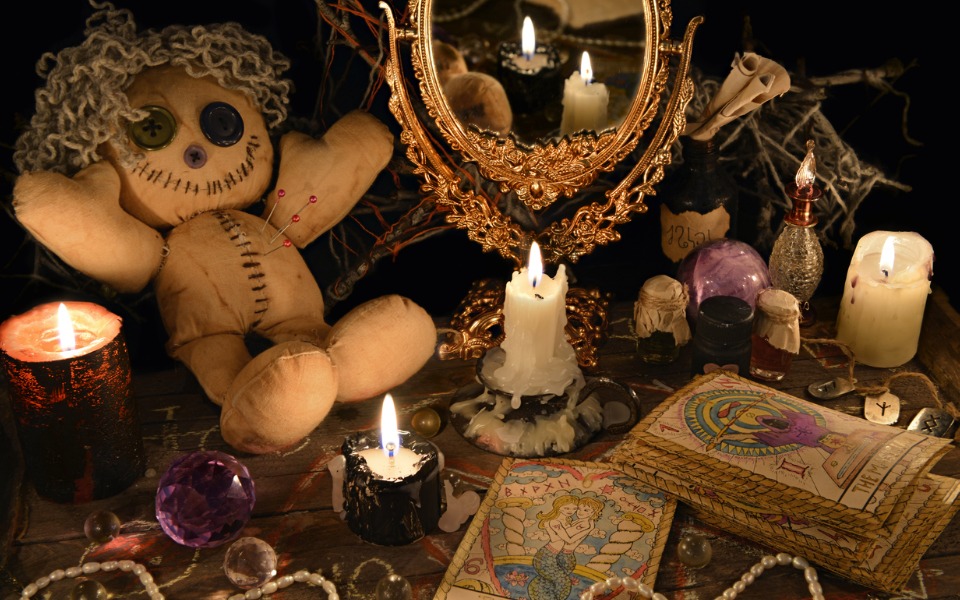
Karnataka notifies anti-superstition Act, bans controversial rituals
The state government earlier this month notified the anti-superstitious Act titled ‘Karnataka Prevention and Eradication of Inhuman Evil Practices and Black Magic Act, 2017’.

On 26 December 2019, three specially-abled children were buried neck-deep and covered in cow dung for three hours during the solar eclipse in a remote village in Kalaburgi, North Karnataka. The parents of these children believed that by doing so, the kids would be cured of their disabilities.
While it was a superstitious belief, the district deputy commissioner soon reached the spot and rescued the children and booked a case against parents. The DC also ordered an awareness drive.
Such practices are now been banned in Karnataka. The state government earlier this month notified the anti-superstition Act titled ‘Karnataka Prevention and Eradication of Inhuman Evil Practices and Black Magic Act, 2017’ passed in the state Assembly in November 2017 during the Siddaramaiah government. Even the word ‘superstition’ was dropped from the title.
The Act seeks to eradicate inhuman practices performed in the name of ‘black magic’. It further bans controversial religious inhuman practices which violate human dignity. It bans ‘made snana’, a practice where devotees are made to roll over banana leaves on which food was earlier served to Brahmins.
Also read: Yediyurappa U-turn: Notifies anti-superstition law despite opposing it
The Act also bars one from subjecting women to humiliating practices such as ‘betthale seve’, where women are paraded around naked in the name of worship. It prohibits the killing of an animal by biting its neck (Gaavu), coercing a person to walk on fire, keeping women in isolation due to menstrual taboos, among other similar practices.
Though the legislation was initially opposed by the now ruling BJP, it was later agreed upon after a toned-down version was tabled in the Assembly.
The bill initially proposed to even ban astrology, numerology, vaastu, and stamping of mudra on the body, a practice in the upper caste community (Madhwa Brahmins) among several other superstitious practices. However, these were exempted later.
Anyone who is found guilty under the provisions of the Act can be imprisoned for a period of one to seven years. The act provides to appoint a vigilance officer to monitor and prevent the listed offences.
History of the Act
The Maharashtra government first proposed an anti-superstitious bill in 2003. However, it became law after 10 years with a watered-down version. Rationalist Narendra Dabholkar, who was carrying out an anti-superstition movement in the state, initially drafted the bill and had campaigned hard to push the government to bring one such legislation. Dabholkar had come under severe criticism from right-wing groups who alleged that the bill targeted Hindu religious practices.
On 20 August 2013, Dabholkar was shot dead while he was out for a walk. His death triggered widespread protests and Maharashtra government soon after promulgated an ordinance to make the anti-superstitious law effective.
Following his death, Siddaramaiah, a rationalist himself, who had just then come to power, asked the Bangalore-based National Law School of India University (NLSIU) to draft the bill. To make a point, around the same time, Siddaramaiah frequently visited Chamarajanagar, a place jinxed and associated with bad luck, like Noida. Most Chief Ministers avoided visiting the district during their tenure.
Subsequent to Dabholkar’s murder, issues like ‘made snana’, a practice followed in famous temples like Kukke Subramanya, became a contentious issue. Though the religious groups initially opposed the government’s move to ban it, they later agreed.
“Superstition is highly prevalent among the economically weaker sections of society. They are taken for a ride by people who practice black magic. We need to instill scientific temper among the downtrodden people,” he had said when the bill had been introduced.
The ex-CM reiterated that the legislation was not aimed at undermining any religious practices or rituals. Now, Siddaramaiah welcomed the BJP for enforcing the Act and at the same time, condemned them for opposing the bill without any rationale when it was tabled in the Assembly earlier.
Much on the lines of Karnataka and Maharashtra, states like Bihar, Jharkhand, Chhattisgarh, and Assam have enacted laws aimed at banning witchcraft and witch-hunting.
Similarly, the Kerala government is currently mulling over a decision to bring in a legislation akin to the one in Karnataka and Maharashtra.

